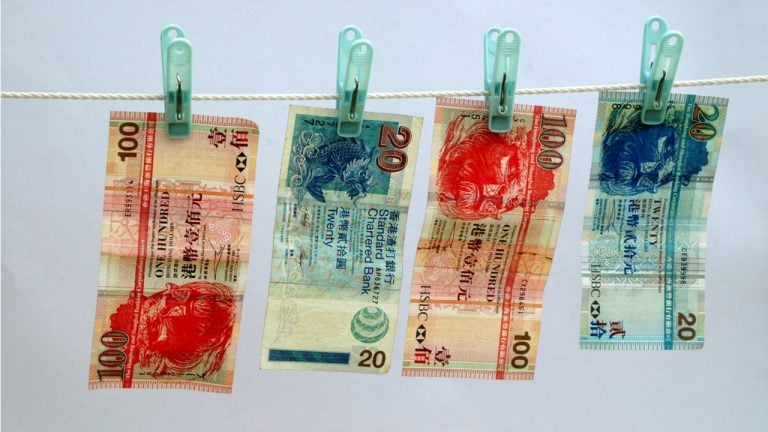Whales Invest $20M in Chainlin...
21 January 2025 | 9:49 pm

Authorities in Hong Kong have arrested four people suspected of money laundering a total of $155 million through cryptocurrency wallets and bank accounts. The city’s customs agency said this was its first case in which virtual money had been used to launder dirty cash.
The criminal group is believed to have processed illegal funds for a total of 1.2 billion Hong Kong dollars ($155 million), Hong Kong Customs announced Thursday. In an operation code-named “Coin Breaker,” officers detained the suspected ring leader and three other residents of China’s special administrative region.
The money laundering syndicate started its criminal activities last year and has been using three shell companies. The entities opened e-wallet accounts with an unnamed digital asset platform to trade the stablecoin tether (USDT). Authorities think the mastermind of the scheme convinced the other individuals to register as executives of the three firms.

“Our investigation revealed that the syndicate laundered about HK$880 million ($113 million) through the cryptocurrency between February 2020 and May 2021,” said Senior Superintendent Mark Woo Wai-kwan of the Customs’ Syndicate Crimes Investigation Bureau. Quoted by the South China Morning Post, the official added that the coins involved in the transactions came from around 40 e-wallet accounts.
According to Superintendent Grace Tang Wai-ngan, 150 million Hong Kong dollars’ worth of crypto from the total amount was transferred to more than 20 e-wallets. The remaining 730 million Hong Kong dollars were cashed out and the money was deposited into eight bank accounts owned by the three shell companies.
Around 500 cryptocurrency transactions passed through the firms’ wallets in just six months, she explained. These transactions averaged 400,000 coins, or more than 3.1 million Hong Kong dollars (about $400,000), with the largest involving $20 million worth of crypto.
Besides the 880 million Hong Kong dollars handled through cryptocurrency, officials claim that another 350 million Hong Kong dollars ($45 million) were laundered through conventional means. The funds were transferred into the same eight bank accounts via 100 other accounts including business accounts belonging to 18 different shell companies registered in Hong Kong.

A total of 1.08 billion Hong Kong dollars (almost $140 million) was in the end deposited into more than 200 bank accounts. These included personal accounts and accounts controlled by money changers, investment companies, and real estate firms in Hong Kong and other jurisdictions.
Investigators established that 60% of the funds had been transferred through bank accounts in Singapore where Hong Kong authorities asked law enforcement officials to support their efforts to track the money. Hong Kong Customs now plans to enhance its cooperation with other agencies and regulators to address the use of cryptocurrency in money laundering crimes.
The investigation into the origins of the funds, the initial senders, and ultimate receivers of the laundered money continues. According to the South China Morning Post, the four suspects have been released on bail. Their money laundering offenses could lead to a maximum prison sentence of 14 years and a 5 million Hong Kong dollars fine (around $640,000).
What are your thoughts on the money laundering case in Hong Kong? Let us know in the comments section below.